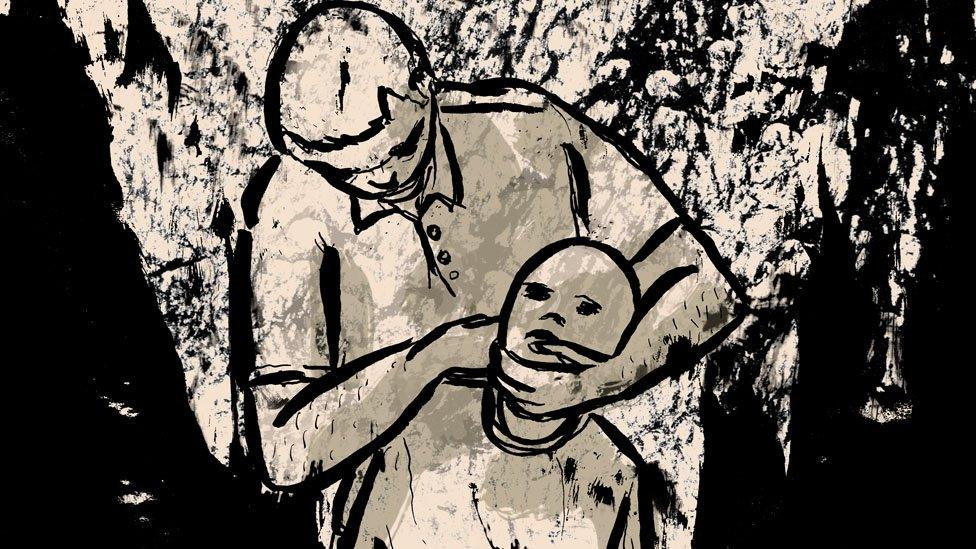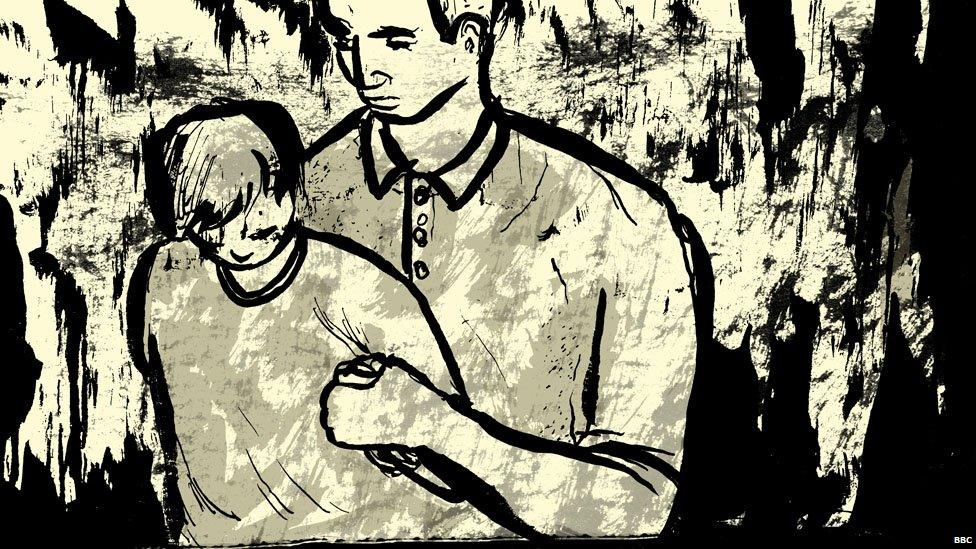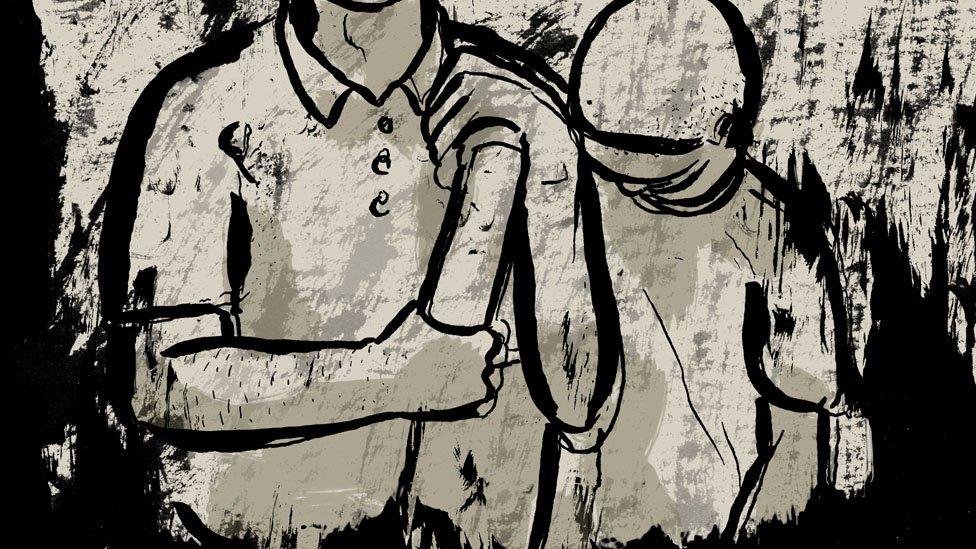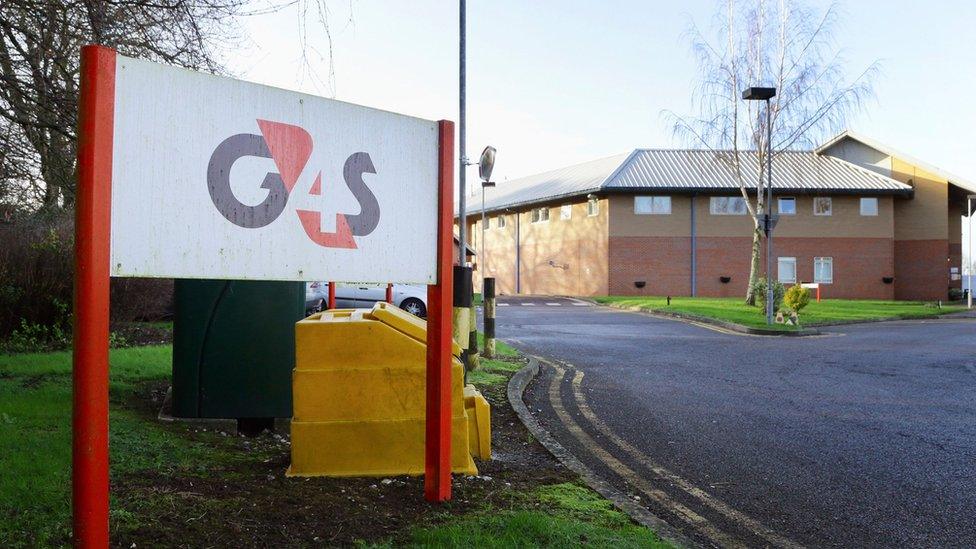Ban painful restraint techniques on children, say charities
- Published

Ministers are under growing pressure to ban the painful headlocks, wrist and arm twists that can be used to control children's behaviour in youth prisons.
The national inquiry into child sexual abuse (IICSA) recently concluded "pain compliance" measures were child abuse and should be outlawed.
And the Equalities and Human Rights Commission ruled last week that such methods should not be used on children.
The government said restraint was used only as a last resort.
But children's charities, who have long campaigned for change, say these recommendations ending its use should be adopted straight away.
Compliance
The Ministry of Justice commissioned Charlie Taylor, chairman of the Youth Justice Board for England and Wales, to carry out a review of restraint.
This came after a children's rights group, Article 39, lodged an application at the High Court for a judicial review of the practice.
That action has been stayed pending the outcome of the report.

But solicitors acting for the charity have written to the government urging it to put the recommendations into practice.
They say there is no justification for spending public money on a continued review when the Independent Inquiry into Child Sexual Abuse examined the use of restraint as part of its investigation into children in custodial institutions.
It found pain compliance techniques were used on children in custody during 119 incidents in Youth Offending Institutions in the year to 2017.
The Ministry of Justice said there were 181 incidents in which pain-inducing restraint techniques were used on children last year.
The techniques, designed for the prison riot squad, aim to force an individual to comply by use of pain.
'Child abuse'
They involve pressure being applied to limb joints or certain pressure points. The longer the target takes to comply, the more pain they are likely to endure.
The most popular physical restraint method is the inverted wrist hold. It was used 3,692 times, according to official data.
Officials deny this technique causes pain, but a review by the Prisons Inspectorate suggests that it does.
The IICSA report said: "The chair and panel consider that the use of pain compliance techniques should be seen as a form of child abuse, and that it is likely to contribute to a culture of violence, which may increase the risk of child sexual abuse.
"The chair and panel recommend that the Ministry of Justice prohibits the use of pain compliance techniques by withdrawing all policy permitting its use, and setting out that this practice is prohibited by way of regulation."
It added that the use of such techniques "normalises pain for staff and children" and "prevents staff from building trusting relationships and inhibits a child from reporting sexual abuse".

Article 39 director Carolyne Willow said: "Mandating adults in positions of authority to deliberately hurt children, and running training courses that show exactly how to inflict severe pain, is institutionalised child abuse. There is no other way to describe it.
"These techniques should have been completely withdrawn after the terrible death of Adam Rickwood."
Adam Rickwood took his own life in a youth custody centre after he was restrained using a now banned restraint technique.
A coroner ruled the use of force contributed to his death.
Ms Willow continued: "It's taken 15 years to get to this point where the country's largest ever public inquiry into child abuse has recommended legal prohibition.
"The urgency comes in the inquiry describing pain compliant techniques as a form of child abuse.
"How can ministers not act quickly to protect vulnerable children after that?"
'Inhumane'
Head of policy at the NSPCC Almudena Lara backed Iicsa's calls for pain compliance techniques to be banned.
"Such outdated practices, including an inverted wrist hold and thumb flexion, are likely to contribute to a culture of violence which may increase the risk of abuse, including child sexual abuse.
"For far too long, children have been subjected to this inhumane treatment and it must be stopped once and for all."
A Ministry of Justice spokesperson said: "Staff are trained to resolve conflict verbally and our policy is clear that restraint should only ever be used as a last resort where there is a risk of harm to the young person or others and no alternative intervention is possible.
"In addition, we have commissioned Charlie Taylor to independently review our policy on the use of pain-inducing techniques and he is due to complete his review this summer."
Illustrations by Emma Russell
- Published28 February 2019

- Published21 January 2019

- Published27 January 2011
